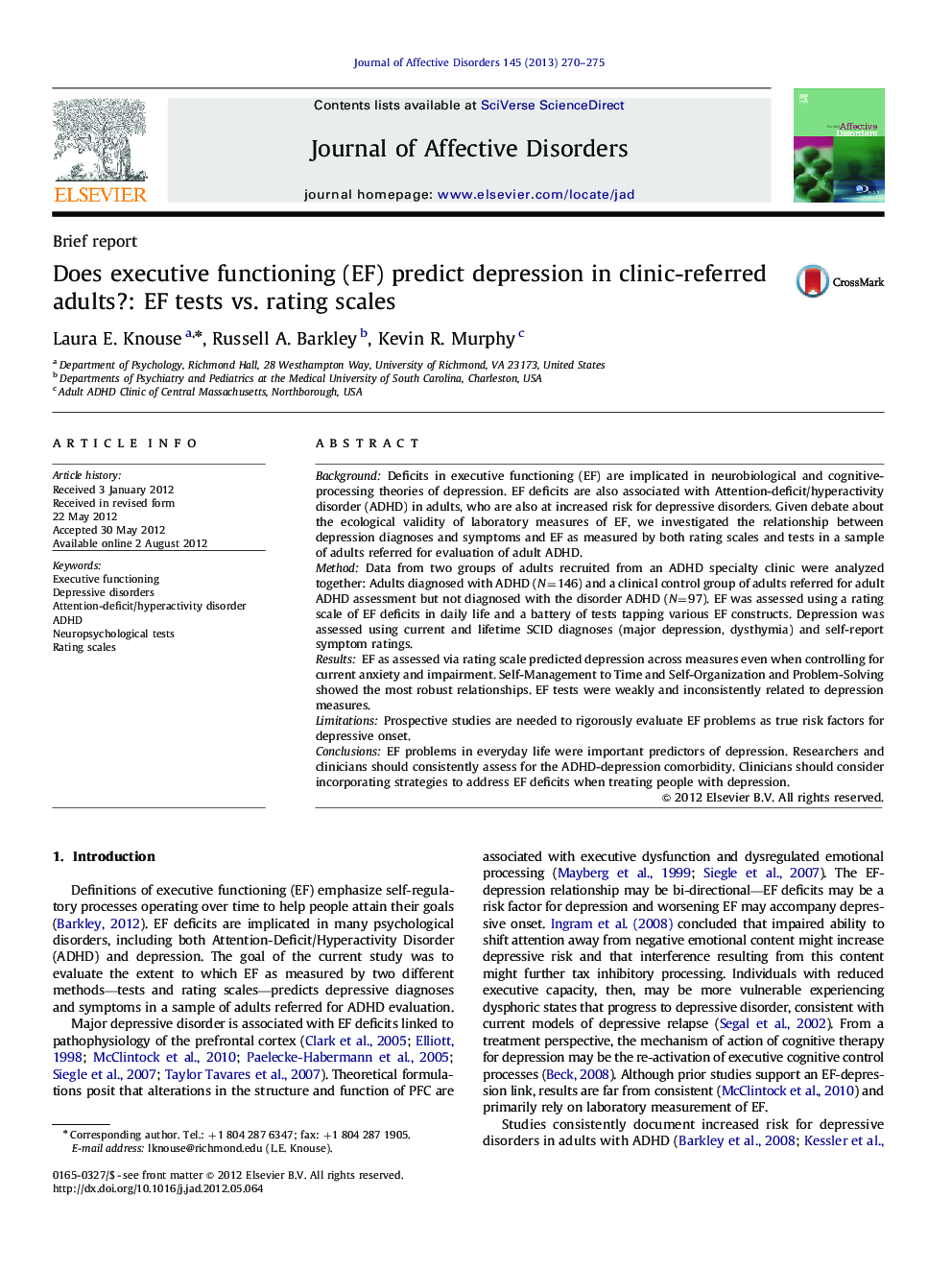| Article ID | Journal | Published Year | Pages | File Type |
|---|---|---|---|---|
| 4186105 | Journal of Affective Disorders | 2013 | 6 Pages |
BackgroundDeficits in executive functioning (EF) are implicated in neurobiological and cognitive-processing theories of depression. EF deficits are also associated with Attention-deficit/hyperactivity disorder (ADHD) in adults, who are also at increased risk for depressive disorders. Given debate about the ecological validity of laboratory measures of EF, we investigated the relationship between depression diagnoses and symptoms and EF as measured by both rating scales and tests in a sample of adults referred for evaluation of adult ADHD.MethodData from two groups of adults recruited from an ADHD specialty clinic were analyzed together: Adults diagnosed with ADHD (N=146) and a clinical control group of adults referred for adult ADHD assessment but not diagnosed with the disorder ADHD (N=97). EF was assessed using a rating scale of EF deficits in daily life and a battery of tests tapping various EF constructs. Depression was assessed using current and lifetime SCID diagnoses (major depression, dysthymia) and self-report symptom ratings.ResultsEF as assessed via rating scale predicted depression across measures even when controlling for current anxiety and impairment. Self-Management to Time and Self-Organization and Problem-Solving showed the most robust relationships. EF tests were weakly and inconsistently related to depression measures.LimitationsProspective studies are needed to rigorously evaluate EF problems as true risk factors for depressive onset.ConclusionsEF problems in everyday life were important predictors of depression. Researchers and clinicians should consistently assess for the ADHD-depression comorbidity. Clinicians should consider incorporating strategies to address EF deficits when treating people with depression.
